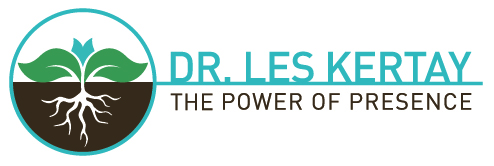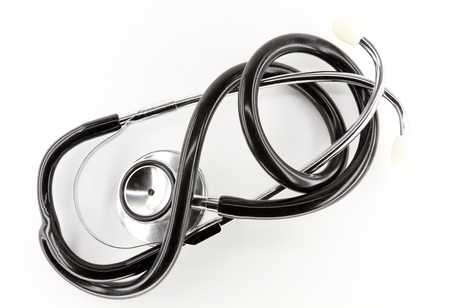There is something wrong with healthcare in this country. Greed. Greed is what’s killing healthcare.
It isn’t President Obama’s fault, and it isn’t the Affordable Care Act. Let’s just get that out of the way so that those of you with no interest in hearing an alternative explanation can stop reading now. Greed is what’s killing healthcare.
Everybody says so, in the wake of the story of Heather Bresch, CEO of Mylan NV, and the EpiPen. Ms. Bresch is suffering her 15 minutes of infamy because she hiked the pen’s cost by 400% while increasing her salary by 671% (to $18.5 million and change). Everybody is pissed at her greed because the EpiPen is a lifesaver, and because it’s an established drug with no new R&D costs. Mylan, under her watch, cornered the market and jacked up the prices to make a buck.
But by next week, maybe the week after, no one will care. The news cycle will have moved on. Just like it did after Martin Shrkeli pulled an even more audacious stunt with Daraprim, a 60 year old medicine, jacking up the price by 5,500%. Just like it has 5 days after Aetna announced that it is pulling out of federal insurance exchanges because they’re pissed about the Justice Department trying to block their merger with Humana, hiding their real reasons behind the argument that they are losing money.
It’s true that Aetna lost money on the federal exchanges, because the signup didn’t balance the risk pool the way it should. They actually lost quite a bit. During which time their total net profits – after expenses and taxes – were $1.5 trillion – trillion, not a typo – for the first 6 months of 2016.
None of these by itself is killing healthcare. What’s killing healthcare is a system that allows, even demands, events that scream greed. A system built on a profit motive and the need to feed money to the greed machine.
Too much? Too hyperbolic for your taste? I’m just warming up.
The beat goes on, and on, and on
Yesterday, a news item crossed my inbox announcing that the FDA had approved a “new” long-acting pain medication. It struck me as odd to combine a known and established long-acting opioid pain medicine (oxycodone) with a medicine designed to combat addiction (naltrexone). It seemed even more odd to call it something new.
To be fair, they added naltrexone to reduce the potential for drug abuse – the naltrexone mitigates the effect of the narcotic if you crush the pills and try to inject or snort the powder.
Still. Two established medicines, now combined into one, marketed as a new medication. For more money.
Here’s what struck me as most odd. We have a huge epidemic of narcotic pain medication in this country. Huge. 207 million retail prescriptions in the US in 2013, down slightly from the peak of 219 million in 2011. An estimated 26.4 to 36 million people who abuse opioids worldwide. And we know, and have known for years, that opioids DO. NOT. WORK. for chronic, non-malignant pain. That’s medical fancy-talk for the fact that narcotics don’t help pain that isn’t caused by an obvious acute cause (a broken bone, a tumor, a nerve injury, etc.) We know, in fact, that it tends to make pain worse.
Seriously, long-term use of narcotic pain medications for chronic pain MAKES. IT. WORSE. Let that soak in for a minute.
And now consider that more people died last year of drug overdose than died in car accidents. 40% of those deaths were due to prescription opioids, and another 22% were from heroin.
Ask yourself, why did we just approve a new pain medication that carries substantial risk of death, and will be used for conditions for which it will not help, and for which it will make things worse?
Answer? Because it will make a lot of money. Period.
Now for the really bad news
These issues – price gouging, runaway cost increases, the continued pushing of medications that don’t work and often make things worse and may actually kill people – are not going to change for the better any time soon.
We pilloried Shrkeli, and the company drove him out. Bresch might have the same fate, though as the daughter of a Virginia Senator, that might be less likely. These actions won’t stop the practices that led to them. And the problems aren’t isolated.
New controls on opioids won’t stem the tide of narcotic abuse, because the states that have tightened controls most are the places with the largest new, and growing, influx of heroin.
Everyone has already dismissed Aetna’s move, just as they did United Health, as “just good business” – because, “Obama” – never really understanding the underlying numbers and the underlying problem.
The problems won’t get better because the problem with the US health care system is that it is a for-profit system. Profit drives the need to take care of shareholders who want their investment to grow. The system is a greed petri dish, and the culture is virulent.
We have the most expensive medical system on the planet, with outcomes that suck. Maybe we could justify the expense if we had good health outcomes, but we don’t. In fact, the World Health Organization ranked the US 37th among industrialized nations in 2000, and the trend has continued downward. More spending has not reversed the trend, not even a little.
Until we recognize, the way that almost all the rest of the world has recognized, that society has a responsibility to provide healthcare for the people in it, health care costs will continue to go up, and outcomes won’t improve.
Because, greed. That’s my story and I’m sticking to it.
Dr Les Kertay, Awakened Moments




